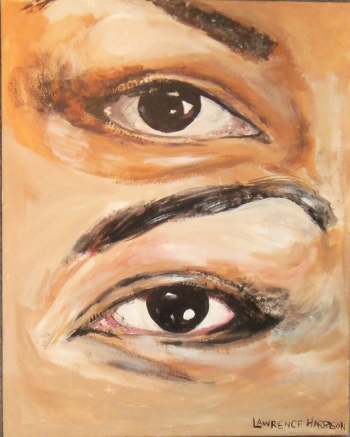The Double Vision of Motherhood

In a new series on the blog, we explore the joys and the tribulations of being both a graduate student and a parent. Over the next several weeks, we will post pieces by graduate students from all stages of our program. Each has a unique perspective on parenting and academia. It is our hope that this series will speak to graduate students everywhere, who have either entered graduate school with children, have had children as graduate students, or are contemplating it. We also think it will speak to any and all parents and prospective parents, regardless of whether they are students or not, who simply want to hear the perspectives of other parents.
Second in the series is a post by Catherine Cronquist Browning, who is currently serving as a lecturer in the department, since completing her Ph.D. here last year.
 When I think about being an academic mother, a series of images comes to mind. Sitting at my desk on a sunny June morning with a stack of dog-eared books on my left and a new bouncy chair on my right, reading snatches of my dissertation aloud to my infant to keep him amused as I revise. Standing in a maternity suit at a lectern, giving a talk on the history of childhood while my body announces for me that there is a child in my immediate, personal future. Pushing a stroller ahead of me as I walk to the campus library, hoping my newborn will keep napping while I return books.
When I think about being an academic mother, a series of images comes to mind. Sitting at my desk on a sunny June morning with a stack of dog-eared books on my left and a new bouncy chair on my right, reading snatches of my dissertation aloud to my infant to keep him amused as I revise. Standing in a maternity suit at a lectern, giving a talk on the history of childhood while my body announces for me that there is a child in my immediate, personal future. Pushing a stroller ahead of me as I walk to the campus library, hoping my newborn will keep napping while I return books.
In certain ways, academia is very friendly to parents; the schedule is relatively flexible, and you can do much of your research and writing from home. In other ways, as Berkeley’s own Prof. Mary Ann Mason has documented, the rigid structure of hiring, promotion, and tenure at academic institutions makes it extremely difficult for mothers in particular to get and keep the best academic jobs; the demands of childcare are perceived to interfere, perhaps even more than in some other careers, with a single-minded focus on advancement, and even when they do not, supervisors and colleagues may fear that they will.
As I face the so-called “motherhood penalty,” I am beginning to think more about those women who have won places in our literary canon who were themselves balancing writing with caring for their children. Charlotte Smith, mother of twelve children, who revitalized English poetry with her Elegiac Sonnets, set the eighteenth-century standard for children’s literature, and wrote ten novels. Elizabeth Gaskell, mother of seven, who wrote the first biography of Charlotte Brontë and whose topical novels were admired by Dickens. I wonder about the details of how their days were spent, how they balanced the immediate needs of their children with the necessity of creating intellectual space for themselves.
Each day, I move back and forth between my child and my writing; concrete activities like feeding, cleaning, and comforting are interspersed with more abstract, meditative thought. And yet these two frames of mind seem more and more to be influenced by one another. I am frequently reminded of a poem that I read as an undergraduate, Al Zolynas’s “The Zen of Housework,” in which the speaker experiences a moment of transcendence while washing the dishes. I think, too, of Elizabeth Barrett Browning’s heroine Aurora Leigh, who tells us that
poets should
Exert a double vision; should have eyes
To see near things as comprehensively
As if afar they took their point of sight,
And distant things, as intimately deep,
As if they touched them.
As an academic and a mother, I often feel that I am called upon to sustain a similar “double vision,” staying in the immediate moment as my son babbles, eats, and explores, and yet also projecting my thoughts back into literary history and forward into future research projects. I can only hope that the double vision of academic motherhood will give me a new insight into the double vision of the poet.
Written by Catherine Cronquist Browning
Posted by Jeffrey Blevins

I was an undergraduate English major at UC Berkeley and am now teaching writing at Sarah Lawrence. I raised a daughter and am now raising, in part, a granddaughter, and I find being with children and writing and teaching quite compatible, in the same voice, in a way, but paying bills and making phone calls on business, and going to events outside the house quite impossible. I am touched by your piece. Thank you.